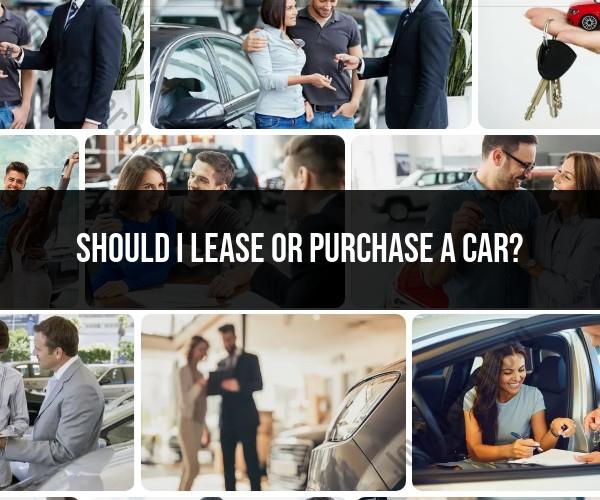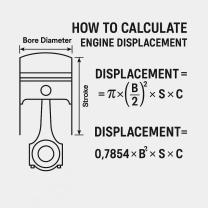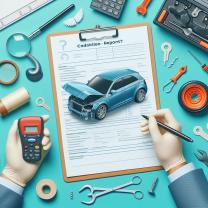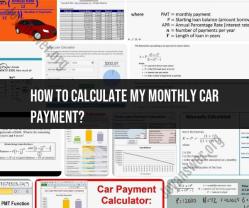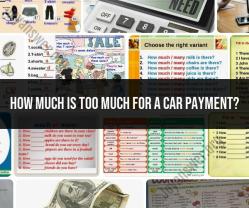Should I lease or purchase a car?
Whether you should lease or purchase a car depends on your individual financial situation, preferences, and needs. Each option has its advantages and disadvantages, so it's important to consider your priorities before making a decision. Here are some factors to help you decide:
Leasing a Car:
Pros:
- Lower Monthly Payments: Lease payments are typically lower than loan payments for purchasing the same car, which can free up cash for other expenses.
- Newer Cars: Leasing allows you to drive a new vehicle with the latest features and technology every few years.
- Warranty Coverage: Most leased cars are under warranty during the lease term, reducing the cost of repairs and maintenance.
- No Resale Hassles: You don't have to worry about selling or trading in the car when the lease ends.
Cons:
- Limited Mileage: Lease agreements often come with mileage restrictions, and exceeding them can result in extra fees.
- No Ownership: You don't build equity in the vehicle because you don't own it at the end of the lease.
- Penalties for Wear and Tear: You may be charged for excessive wear and tear on the leased vehicle.
- Long-Term Costs: Over time, leasing multiple cars may cost more than purchasing one and keeping it for many years.
Purchasing a Car:
Pros:
- Ownership: You own the vehicle outright after the loan is paid off, and you can keep it as long as you want.
- No Mileage Limits: You can drive as much as you like without worrying about mileage restrictions.
- Customization: You have the freedom to modify and personalize the vehicle as you see fit.
- Equity Buildup: As you make payments, you build equity in the car, which can be valuable if you decide to sell or trade it.
Cons:
- Higher Monthly Payments: Monthly loan payments are usually higher than lease payments for the same car.
- Depreciation: New cars typically depreciate in value, and the rate of depreciation can affect your car's resale value.
- Maintenance Costs: You're responsible for all maintenance and repair costs once the warranty expires.
- Commitment: You're committed to keeping the car for the long term, and selling it can be a hassle.
To decide whether to lease or purchase a car, consider the following:
Budget: Can you comfortably afford the monthly payments for a purchase, or would you prefer lower lease payments?
Usage: How many miles do you typically drive in a year? Leasing may not be suitable if you have high mileage needs.
Ownership: Do you want to own the car, build equity, and have the flexibility to keep it for many years, or do you prefer driving a new car every few years?
Resale Value: Consider the depreciation rate of the car model you're interested in and how it might affect the vehicle's value over time.
Maintenance and Repairs: Are you prepared to cover maintenance and repair costs after the warranty expires if you purchase?
Customization: Do you want the freedom to customize your vehicle, or are you satisfied with a stock car?
Long-Term Goals: Consider your long-term financial goals and how leasing or purchasing aligns with them.
Ultimately, the decision between leasing and purchasing a car should be based on your personal preferences and financial circumstances. It may be helpful to compare the total cost of each option over the period you plan to keep the vehicle and evaluate which aligns better with your lifestyle and goals. Additionally, it's wise to consult with a financial advisor or auto expert for guidance tailored to your specific situation.
Lease or Purchase: The Car Ownership Debate
The decision of whether to lease or purchase a car is a personal one that depends on your individual needs and circumstances. There are pros and cons to both options, and it is important to weigh them carefully before making a decision.
Leasing
Leasing a car involves renting a car from a dealership for a specific period of time, typically two to four years. At the end of the lease term, you have the option to return the car to the dealership, lease a new car, or purchase the car for the agreed-upon residual value.
Pros of leasing:
- Lower monthly payments: Lease payments are typically lower than monthly car loan payments because you are only paying for the depreciation of the car during the lease term.
- No down payment: Most leases do not require a down payment.
- New car every few years: If you like driving a new car every few years, leasing can be a good option for you.
- Fewer maintenance costs: Leased cars are typically covered by the manufacturer's warranty during the lease term, so you will not have to pay for most maintenance costs.
Cons of leasing:
- Mileage limits: Most leases have mileage limits, and you will be charged for any excess miles.
- Wear and tear: You may be charged for excessive wear and tear at the end of the lease term.
- Early termination fees: If you want to terminate your lease early, you will likely have to pay a fee.
Purchasing
Purchasing a car involves buying a car outright and owning it free and clear. You can finance the purchase of a car with a car loan, or you can pay for it in full upfront.
Pros of purchasing:
- No mileage limits: You can drive as many miles as you want without having to worry about being charged.
- No wear and tear charges: You can own your car for as long as you want and are not responsible for any wear and tear.
- No early termination fees: You can sell your car at any time without having to pay a fee.
Cons of purchasing:
- Higher monthly payments: Monthly car loan payments are typically higher than lease payments because you are paying for the entire cost of the car, plus interest.
- Down payment: Most car loans require a down payment.
- Maintenance costs: You will be responsible for all maintenance and repairs on your car.
Which option is right for you?
The best way to decide whether to lease or purchase a car is to consider your individual needs and circumstances. If you are looking for lower monthly payments and don't mind driving a new car every few years, leasing may be a good option for you. If you want to own your car outright and have no mileage limits or wear and tear charges, purchasing may be a better option for you.
Here are some additional things to consider when making your decision:
- How long do you plan to keep the car? If you plan to keep the car for more than five years, purchasing may be a better option in the long run.
- How many miles do you drive per year? If you drive more than the mileage limit on your lease, you will be charged for the excess miles.
- What is your budget? Leasing and purchasing both have different upfront and ongoing costs. Be sure to factor all of these costs into your decision.
Ultimately, the decision of whether to lease or purchase a car is a personal one. There is no right or wrong answer. It is important to weigh the pros and cons of both options carefully before making a decision.
